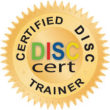In today’s evolving educational landscape, schools are continuously seeking new ways to inspire and engage students beyond the traditional classroom curriculum. One approach that has gained significant attention is the use of guest speakers—individuals who bring real-world experience, expertise, and fresh perspectives to the classroom. From entrepreneurs and scientists to motivational speakers and alumni, these visitors can have a profound effect on student motivation, engagement, and success.
So, what does the research say about the role of guest speakers in education? Let’s take a closer look.
Increased Engagement and Attention
Research consistently shows that student engagement is a key predictor of academic success. When students are actively involved in learning, they retain more information and are more likely to pursue related interests. Guest speakers introduce novelty to the learning environment, which captures students’ attention and encourages curiosity.
Studies have found that students are more attentive and responsive during guest speaker sessions compared to regular lectures. This is especially true when the speaker shares personal stories, real-life challenges, and interactive elements that connect classroom theory to the outside world.
Bridging the Gap Between Education and the Real World
One of the most valuable aspects of bringing in a guest speaker for schools is the opportunity to connect academic content with real-life applications. Students often question how what they’re learning in school will benefit them in the future. Guest speakers can provide tangible answers by sharing their career journeys, offering insights into specific industries, and demonstrating how classroom knowledge translates to real-world skills.
This bridge between school and career not only helps students see the value of their education but also opens their minds to new career paths they may not have previously considered.
Boosting Motivation and Self-Efficacy
Hearing from individuals who have overcome obstacles or achieved success in their fields can have a powerful motivational effect on students. Guest speakers can reinforce the idea that success is achievable and that hard work and perseverance pay off.
According to research, exposure to role models—especially those from similar backgrounds or communities—can increase students’ self-efficacy, or their belief in their ability to succeed. This is particularly important for underserved or at-risk student populations, where confidence in future possibilities can have a lasting impact on academic and personal outcomes.
Enhancing Social and Emotional Learning (SEL)
Guest speakers often touch on topics beyond academic content, such as personal development, leadership, resilience, and emotional intelligence. These conversations contribute to students’ social and emotional learning, helping them develop the soft skills that are critical for success in school and life.
Hearing diverse perspectives also fosters empathy, open-mindedness, and respect for others, which are essential components of a positive school culture.
Encouraging Critical Thinking and Questions
A dynamic guest speaker not only shares knowledge but also invites questions and discussions. This can spark critical thinking and deeper exploration of subjects, encouraging students to become more inquisitive and independent learners. When students are given the chance to engage directly with experts, they often feel more empowered and interested in the topic at hand.
The evidence is clear: incorporating guest speakers into the educational experience can significantly enhance student success. Whether it’s through increased engagement, motivation, real-world connection, or emotional growth, the impact of a well-chosen guest speaker for schools can be both immediate and long-lasting. As educators look for innovative ways to inspire their students, inviting professionals and storytellers into the classroom remains a powerful tool to make learning more meaningful, relevant, and inspiring.



